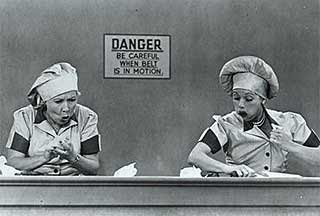- Over the period 1998-2008, the stock of the companies voted "best to work for" appreciated nearly seven times as much as the stock of the average company.
- The most admired companies on Fortune Magazine's list had double the market returns of their competitors over a seven year period.
- Only 13 percent of unhappy employees recommend their company's products, vs 78 percent of happy employees.
Those are just some of the findings reported in Dave Ulrich and Wendy Ulrich's book The Why of Work. The authors argue that companies that treat people as just another factor of production are increasingly at a competitive disadvantage. Conversely, companies that engage their employees in a meaningful way have higher market returns.
Why? The authors offer the following possible explanations:
- "Employees are committed, productive, and likely to stay with the company
- Customers pick up on employee attitudes and are more likely to do business with the company
- Investors have confidence in the company's future, giving it a higher market value
- The company's reputation in the community is enhanced."
There are many approaches to creating a meaningful work environment. One of the simplest (if still rare) is just to treat employees like real people, with valuable insights and instincts for what is best for the business. Another is for the company to engage with the broader communities where it does business, by providing mentoring and volunteering and/or by financially supporting schools, clinics, and other social initiatives. In other words, by treating the broader community members as real people.
What if all businesses treated their employees and customers this way?

